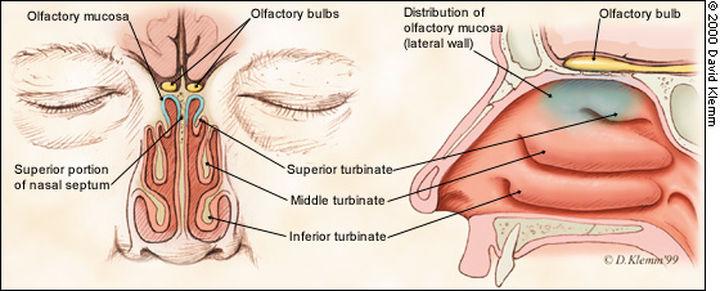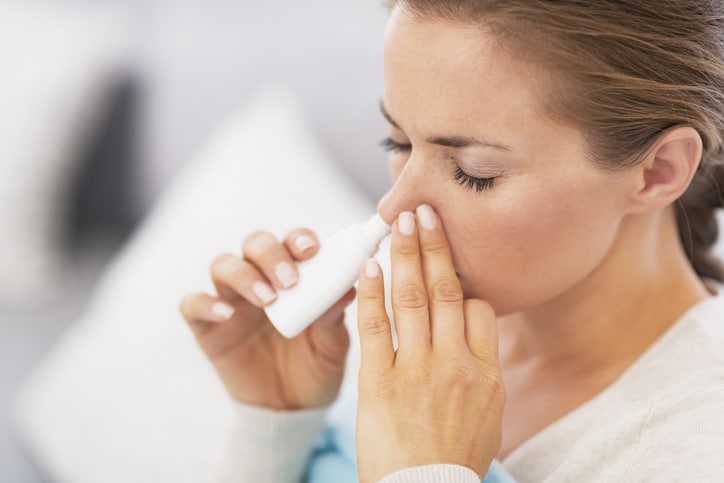As the seasons change from autumn to winter, breathing freely becomes a very luxurious thing for people who suffer from rhinitis all year round.
The nose is the "filter and cleaner" of the lungs. Any dust and bacteria remain in the nose during the filtration of the tiny nasal cilia. Experiments by authoritative international medical institutions on smog show that there are more than 10,000 species of bacteria in the human nasal cavity, which is more than 400 times more than the bacteria on the toilet. People living in cities have even more.
A special survey by the health department shows that 80% of respiratory diseases such as viral influenza, rhinitis, pharyngitis, and pneumonia are caused by a lack of proper cleaning and health care in the nasal cavity.

What are the culprits of rhinitis?
Health issues
First of all, the special structure of the nasal cavity can easily lead to long-term illnesses such as nasal polyps and foreign bodies in the nasal cavity that will eventually lead to rhinitis. The second issue is the body’s resistance. Children’s resistance itself is immature. Once they catch a cold, the treatment time will be extended and health recovery will be slow. Then the cold can easily turn into rhinitis. Of course, other diseases can also develop. Can cause rhinitis, such as tonsillitis, pharyngitis, etc.
Allergens
We all know that rhinitis is mostly caused by allergies to certain things, such as pollen, dust, mites, certain odors, animal hair, etc. Or some people are allergic to food or cosmetics. Therefore, if you want to get rid of the trouble of rhinitis, you must find out what substances you are allergic to, so that you can keep yourself away from allergens and protect your nose.
genetics
Many diseases are caused by genetics. In fact, rhinitis can also be inherited. Some patients with a family history of allergies are often more susceptible to rhinitis.
How to reduce the chance of rhinitis attacks and relieve discomfort?
Clean nasal cavity
The International Health Organization calls for: Nasal hygiene should be cleaned like the mouth through brushing teeth and become a part of daily health care.
The results of international authoritative medical clinical trials show that people who insist on washing their noses once a day have 80.5% lower incidence rates of influenza, 92.3% lower rhinitis, 89.6% lower pharyngitis, 75% lower pneumonia, and 68.1% lower pneumoconiosis than those who do not have the habit of nasal washing.
Cleaning the nasal cavity through nasal cleaning interventional therapy can help clean the nasal passages and restore the function of nasal cilia. It can also help gradually reduce nasal inflammation and reduce the production of nasal secretions.
Pay attention to hygiene
Dust and mites can cause rhinitis. Adults should clean the room frequently to prevent dust from floating, clean bedding in time, and dry the quilt regularly to eliminate mites. Children often stay indoors, so the room should open more windows for ventilation, keep the room dry and ventilated, and ensure the room is clean. Children should also wash their hands frequently to avoid picking their noses with dirty hands and aggravating rhinitis symptoms.
Improve immunity
Let your children develop the habit of exercising, which can improve their resistance and is also an effective way to relieve rhinitis. Strengthen the baby's physical exercise, strengthen the physical fitness, improve the body's adaptability and resistance to external changes, reduce the chance of rhinitis, and keep the child away from the trouble of rhinitis.
Nasal Cleansing Tips
1. Can I make my own sea salt water at home?
It is not recommended to make your own sea salt water at home, because household salt contains iodine, which will damage the nasal mucosa and is not suitable for nose washing. It is also difficult to control the concentration of household salt.
The second is that the water used to prepare salt should be distilled water or boiled cold water, and unclean tap water cannot be used instead to prevent bacterial or parasitic infections.
2. Washing the nose with salt water is indeed effective. Can it be used regularly? Will there be dependencies?
For patients with nasal diseases, such as allergic rhinitis and rhinitis-sinusitis, saline nasal irrigation is one of the treatments recommended by various relevant clinical guidelines. Long-term use will not have an adverse effect on the nasal mucosa, but the disease itself It may persist and requires long-term treatment, as directed by your doctor. If the rhinitis is cured and no longer occurs, there is no need to clean the nose.
In general, increased nasal secretions and swelling of the nasal mucosa are the leading factors causing nasal congestion in children. For nasal congestion caused by different reasons, parents' nursing methods and environmental cooperation must also be targeted to ensure effective relief.
